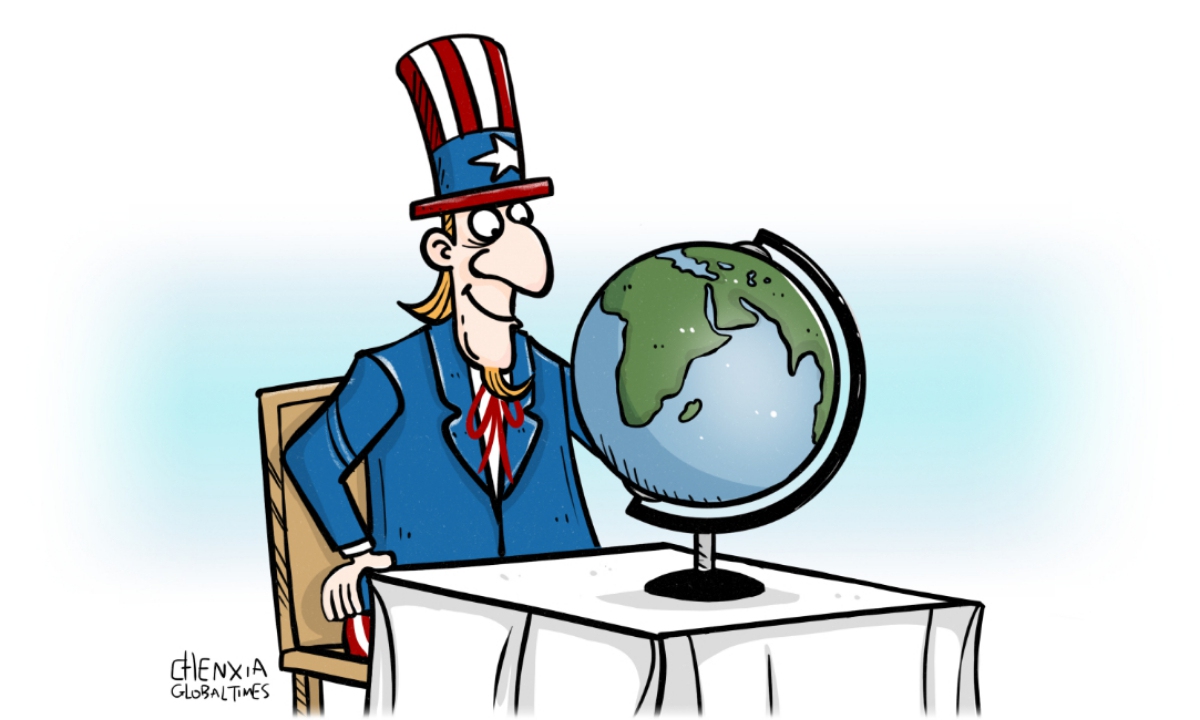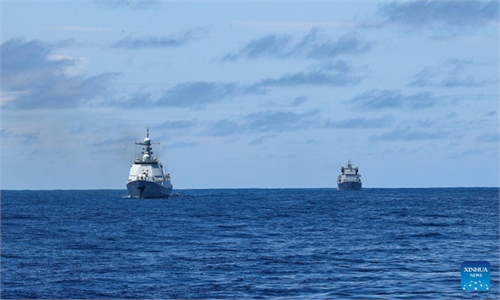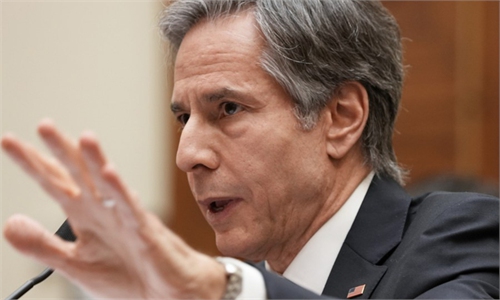
Illustration: Chen Xia/Global Times
US Secretary of State Antony Blinken paid a visit to Africa last week, the fourth visit by a senior US official to the continent this year. US Treasury Secretary Janet Yellen in January kicked off a 10-day trip to Africa trying to strengthen economic ties with Africa. Then US Ambassador to United Nations (UN) Linda Thomas-Greenfield visited the continent, discussing climate issues, and the US "First Lady" Jill Biden also visited Namibia and Kenya with a focus on women's empowerment.
The volley of visits by US' senior officials are seen as setting a stage for US President Joe Biden's potential visit to the continent. It seems Biden is planning to change his predecessor's arrogance toward Africa, but the seemingly positive changes are underpinned by the same logic of "strategic competition".
Blinken's visit to Africa is designed to execute on security strategic confrontation, and his choice to visit Ethiopia and Niger exposes the anxiety on the part of Washington.
As for Ethiopia, the conflict in Tigray has led to an escalating humanitarian disaster. In face of the tragedy, the US suspended preferential trade agreements with the country. The US has done nothing apart from wielding its economic sanctioning stick.
As a traditional development partner, China has always provided large amount of humanitarian assistance to the Tigray region and proposed the "Initiative of Peaceful Development in the Horn of Africa" under the Global Security Initiative(GSI). Meanwhile, Russia is also conducting diplomatic moves to promote the two sides of the conflict to start conversation.
Niger has been at the frontline of counter-terrorism operations. As an ex-colony of France, the country's recent strong dissatisfaction with France's counterterrorism policy has led to the expulsion of the French army. The Macron government admitted that it was frustrated and had to consider building a new type of French-African relations.
And the US is still wielding a big stick to pressure Africa to take sides. Since containing China and Russia has become the core strategic goal of the US' decision-making involving Africa, whether to take sides has become the biggest headache for leaders of African countries. Blinken has taken the "carrot and stick" approach toward Ethiopia and Niger. In addition to economic sanctions against Ethiopia, the US also declines to give clear answer to the country's requirement to restore the duty-free treatment once implemented under the US African Growth and Opportunity (AGOA).
As to Niger, Blinken has taken a more subtle approach. On the one hand, he hypes Russia as the "culprit" of Niger's food security crisis. On the other hand, he announced in a high-profile manner that the US will strengthen cooperation with Niger, like China helping Niger in infrastructure projects such as water supply facilities.
The US' increasing emphasis on Africa does not change the core of the US' strategy - geopolitical competition and rivalry.
In the wake of Blinken's visit, the US Vice President Kamala Harris will travel to Africa later this month where she is scheduled to visit Zambia, Ghana, and Tanzania. The fact that US is sending high-ranking officials to Africa continuously shows the US' increasing focus on the continent. Not only does the US want to re-establish its presence in Africa in terms of economic and security cooperation, but also in terms of international influence, the US wants African countries to be beholden to Washington.
It can be seen from Trump's outrageous "shithole" continent rhetoric out of his Western-centric mentality, the US' political elite basically ignores Africa's international status.
The Biden administration's pivot to the continent does not suggest that it really cares about Africa's development in the global governance perspective. Biden's Africa policy is not different from his predecessors. What the US is most concerned about in Africa is to ensure Washington's global hegemony only.
African leaders know well that the US' geopolitical calculation behind its renewed focus on the continent since the outbreak of Russia-Ukraine conflict. Based on historical experience, most African leaders will not expect the US to be the savior of Africa's economic development. More pragmatic African leaders may have foreseen that the shadow of the Cold War has once again enveloped Africa, and how to stay clear of Washington's power play has become one of their core concerns.
Blinken's trip to Africa was carried out against the backdrop of the Biden administration's rising attempts to counter China and Russia on the African continent, using a combination of "carrot and stick" policies. However, it is an indisputable fact that the trade volume between China and Africa is five times that of the US and Africa, and that China's direct investment in Africa is twice that of the US. In addition, China's aid to Africa has not only built a large amount of infrastructure projects including railways and bridges, but also created millions of job opportunities for local residents. Therefore, it is evident that African countries and people could see the stark differences between the policies of the US and China toward Africa.
The author is professor with School of International Relations and Diplomacy, Beijing Foreign Studies University. bizopinion@globaltimes.com.cn



